"Saigon Bride" was written and sung by Joan Baez. It was released in 1967 (Nyeberg), and it's purpose was to protest the Vietnam war.
Vietnam War Music
During the Vietnam War, music was used as a form of protest. Music proved to be an effective protest because of it's ability to reach people. Most everyone has a connection with some form of music, and certain lyrics reach people in ways that normal protests wouldn't. When people listen to music, they feel the emotions the music portrays, and they are able to understand the meanings of the song. The fact that so many different types of music were used as a protest allowed these musical protests to connect with a large audience, and affect the listeners. The three songs that follow were used to protest the Vietnam War.
Saigon Bride
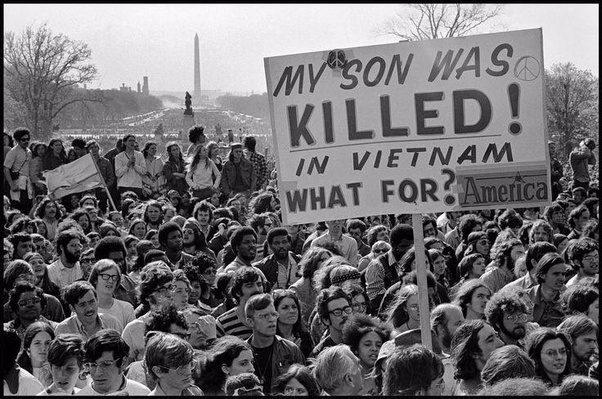
During the Vietnam war, folk music became a form of protest. Young musicians believed that writing songs against the war would be an effective and positive way to protest (Nyeberg).
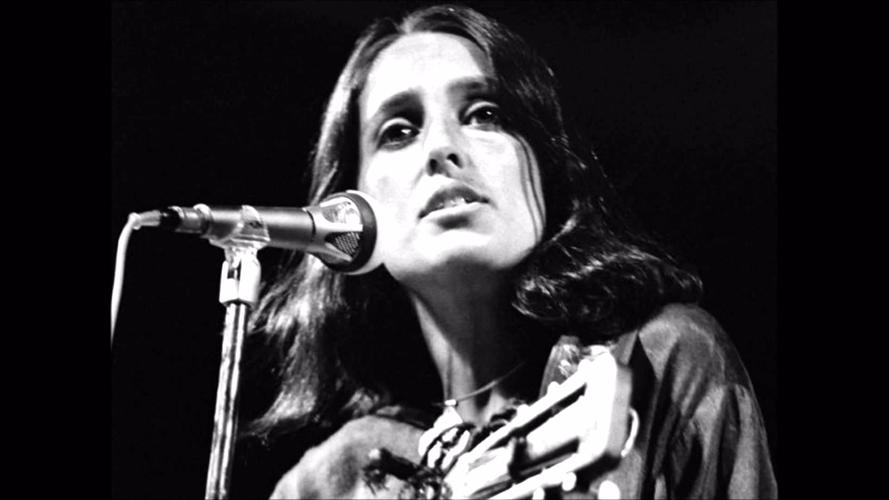
Did you know?
When Joan Baez performed this song in Tokyo, a CIA agent ordered her interpreter to avoid translating the statements she made against the Vietnam war (Nyeberg).
The lyrics in Saigon Bride convey loss and frustration. It seems like the speaker is tired of the loss of life while people strive for unreachable goals. Read below for an analysis of specific lines.
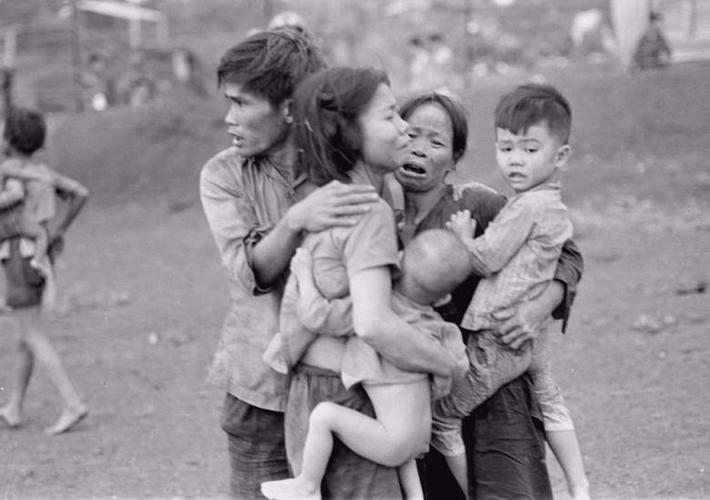
"How many dead men will it take/To build a dike that will not break?/How many children must we kill/Before we make the waves stand still?" These lyrics describe impossible situations, relating these situations to the horrors of the war. It describes losses, "dead men", and children being killed, in order to reach these impossible goals. The frustration that people feel because of the continuing horrors of this war are emphasized in these lines.
"Farewell my wistful Saigon bride/I'm going out to stem the tide/A tide that never saw the seas/It flows through jungles,round the trees/Some say it's yellow, some say red/It will not matter when we're dead" The speaker appears to be a soldier, someone facing the realities of war. These lines acknowledge the previous lines when they say "I'm going out to stem the tide" it connects to the idea of an impossible task. The soldiers keep "stemming the tide", or fighting the war, despite it being impossible. The last part of these lyrics, "it will not matter when we're dead" highlights the imminent death that faces each soldier. Instead of saying "if we're dead" they accept that they will die, and when they do the path of the war won't matter as much to them.
Forum
What do you think is the most meaningful lyric of the song?
"It takes them off the streets you know/To places they would never go alone/It gives them useful trades/The lucky boys are even paid" This line contrasts with the other lines, in which the war is criticized and described with frustration and sadness. These lyrics are used to present the irony of the soldiers situations because when they enter the war they believe it is a good thing. However, the rest of the lyrics in this song reveal it is not the good thing they believed.
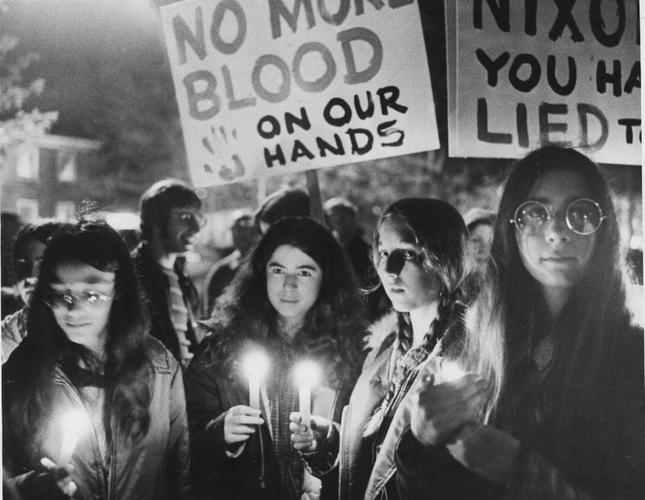
Protesters at a candlelit vigil.
Quiz
Is "Saigon Bride" pro Vietnam War or anti Vietnam war?
- pro Vietnam war
- anti Vietnam war
Draft Morning
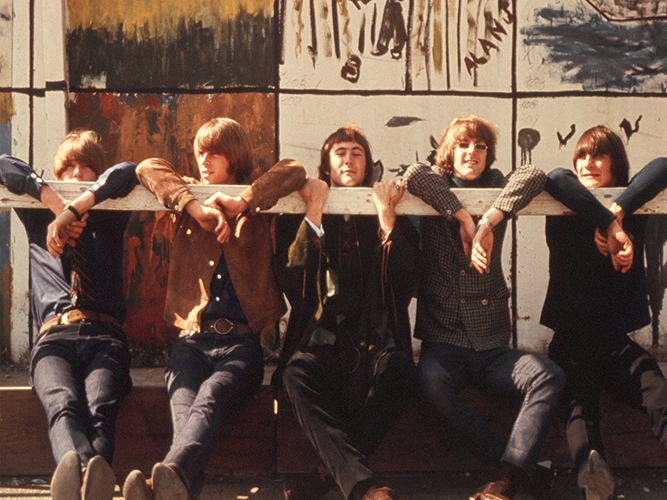
"Draft Morning" was written by David Crosby, a member of a band called The Byrds. David Crosby left the band but the Byrds still released the song in 1968 ("Draft Morning-The Byrds").
This is an anti-war song which directly attacks the draft. This song amplifies the lives and experiences of soldiers in the Vietnam war. Instead of focusing on death and loss, the central idea is that are soldiers forced into the war and out of their more hopeful lives ("Draft Morning-The Byrds").
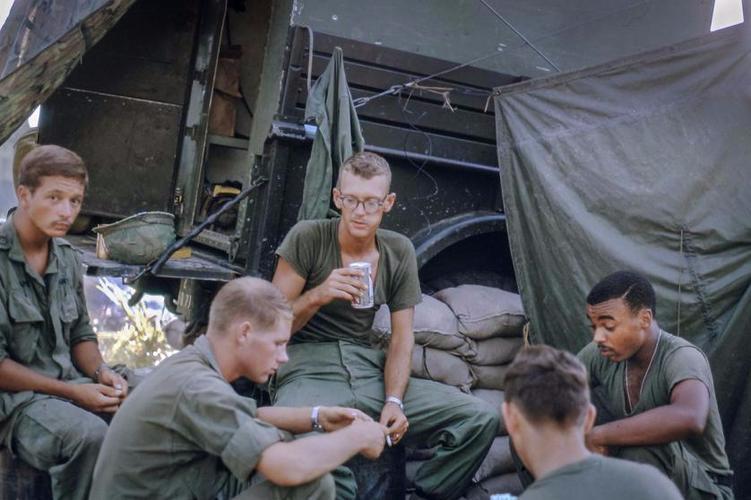
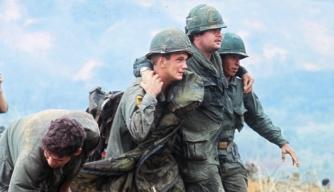
"Draft Morning" describes the experience of a soldier facing the draft. At first he is living his life but when he is drafted and sent to Vietnam, things change for him. Read below for an in-depth analysis of the lyrics.

